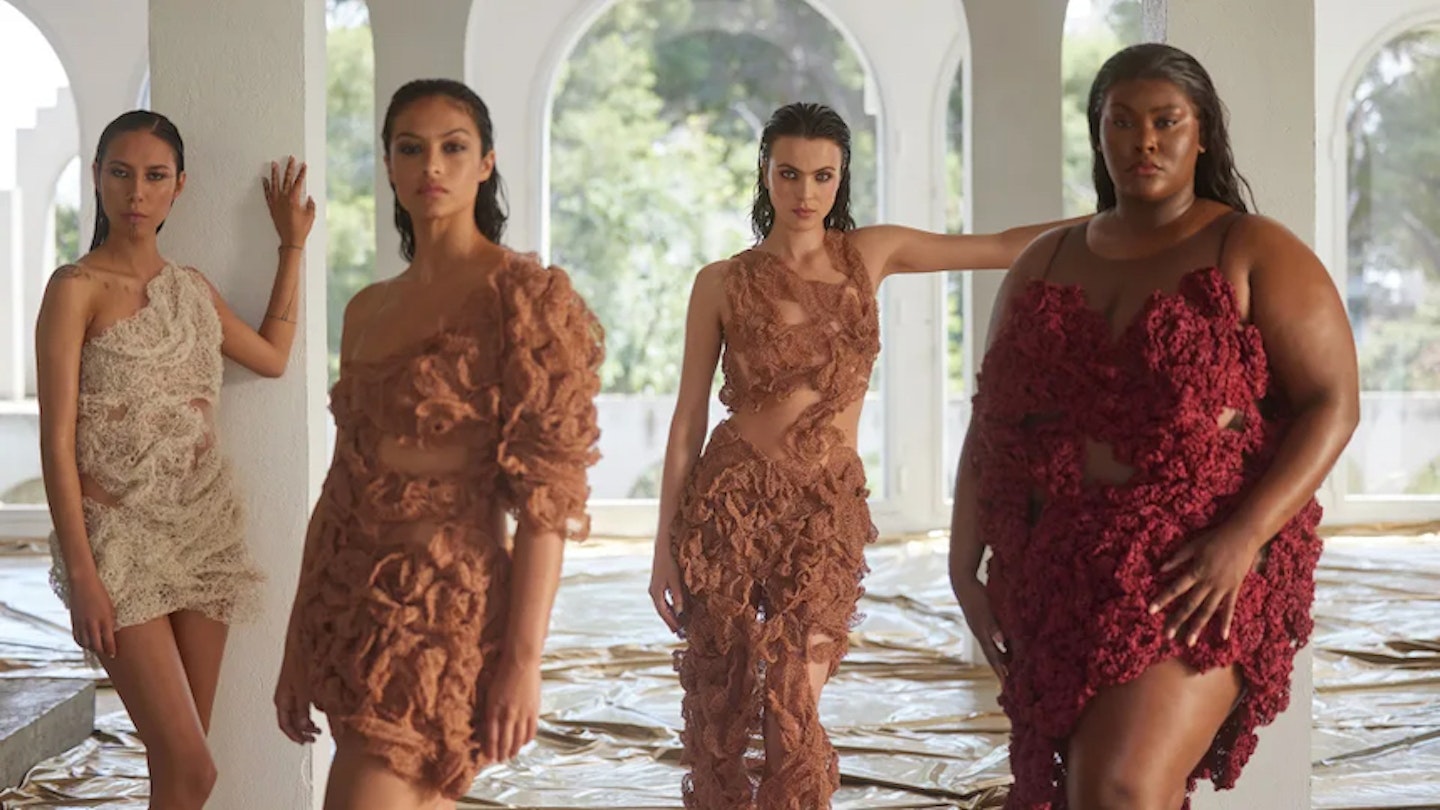And just like that, Victoria’s Secret is back. After five years since its last runway show, the controversial lingerie brand has undergone an extensive identity overhaul in a bid to diversify, returning with a revamped offering in the form of a feature-length film that landed on Prime Video last night.
Titled _Victoria’s Secret: The Tou_r, the 90-minute long film stars some of the VS old guard – Adriana Lima, Candice Swanepoel, Lily Aldridge – alongside newer faces, including Emily Ratajkowsi, Paloma Elsesser, and Adwoa Aboah. The film combines fashion and music with visual arts, taking the viewer from Lagos, Nigeria through to Tokyo, Japan, to stage four different shows featuring four different local designers.
So, does the new film really signal a new era for VS? Let’s not forget, this is the lingerie company that has influenced many millennial woman’s body image hangups for the better part of a decade. It is the reason why many of us spent hours in the gym, trying to get those lines on our stomachs and those dents in our buttocks. It’s the reason why some of us obsessed over restrictive diets, cutting out entire food groups and downing celery juice every morning for no reason except for the fact we once read that Miranda Kerr did it.
Running annually from 1995 to 2018, the Victoria’s Secret Fashion Show was, in many ways, a totem for the very worst of Noughties culture. For years, models like Gisele, Heidi Klum and Tyra Banks would walk the runway in next to nothing, occasionally with the addition of angel wings, flogging young women a singular image of beauty accessible only to a minority of people.
Year after year, as Victoria’s Secret strengthened its global market share, enlisting more famous models and musicians to participate in its shows, these women and their impossibly lithe limbs represented the upper echelons of womanhood. Anything else was deemed unacceptable.
The real problem with VS in its heyday was that its toxicity was insidious. The models were described as ‘athletes’, for example, their diets and workout regimes chronicled in minute detail. This is despite the fact that many of the models themselves have spoken about starving themselves in the run up to the show; Lima told the Telegraph in 2011 that she cut out all solid food nine days beforehand, for example.
And in 2016, former VS model Erin Heatherton said she had been pressured to lose weight: ‘I got to a point where one night I got home from a workout and I remember staring at my food and thinking maybe I should just not eat,’ she told Time.
Things fell apart in 2019, shortly after it was revealed that Victoria’s Secret’s former chief executive, Leslie H Wexner, had close ties to Jeffrey Epstein. A New York Times investigation subsequently shed light on allegations of misogyny, bullying, and harassment within the company. Meanwhile, Ed Razek, former executive at L Brands, which previously owned Victoria’s Secret, was accused of inappropriate contact with models, all of which he denied.
As the new film shows, VS is making an effort to change. The current brand image is a stark difference to its former one (Razek once told Vogue that he didn’t cast trans or plus-size models because it would spoil the ‘fantasy’), championing many different body types.
But does it all feel a bit too little too late? Not least because in the last few years new lingerie brands have emerged, such as Rihanna’s Savage x Fenty, or British label Fruity Booty, which are producing authentically diverse and inclusive campaigns and films.
The jury is out on whether the historic damage VS did to models and customers can be remedied by empowering press releases and tokenistic casting choices. I’d argue that if we’re going to progress as a society, it’s better to look forward instead of back. Personally, I’m not sure that’s going to be possible with Victoria’s Secret.
